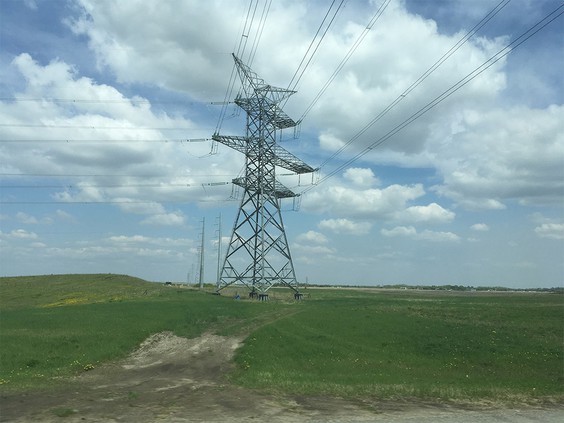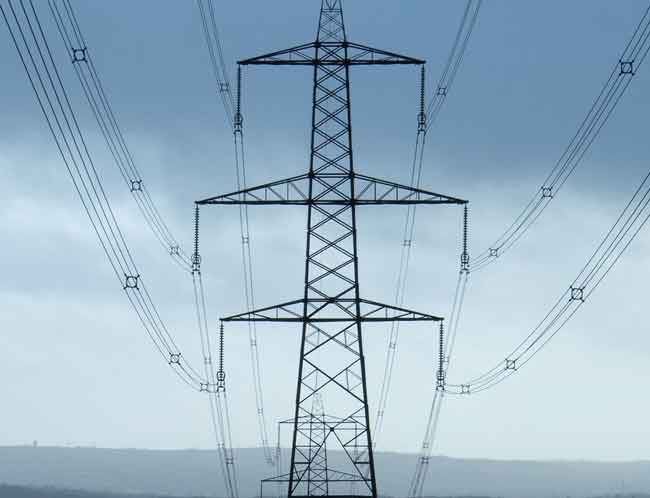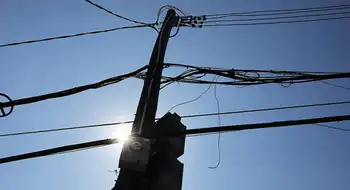Sale of Ontario Hydro Scrapped
TORONTO -- - The province has now backed off plans to sell even a minority interest in transmission giant Hydro One.
It was said that it was because the people didn't want it.
We did hear loud and clear from the people of Ontario that they did not want us to part with control," Premier Ernie Eves told reporters at Queen's Park. "The government will be retaining 100 per cent of Hydro One."
This decision brings the government full circle — it had originally planned to sell all of Hydro One to the private sector in what would have been the largest privatization in Canadian history.
After a court decision and a public outcry, it scaled that back to a plan to sell a minority 49 per cent stake in the firm that owns the wires that deliver Ontario's electricity.
On Nov. 11 — only months after hydro rates started to rise when the market was opened to competition — the government capped electricity charges for most consumers at 4.3 cents per kilowatt hour.
Eves suggested consortiums interested in buying into Hydro One wanted more control than the government was willing to part with.
The Premier also emphasized the government does not need the $2 billion to $2.5 billion from a partial sale to bring in a balanced budget in March.
"We did say at the outset that we would not sell Hydro One just for the sake of selling it," Eves said. "The issue really, basically in our mind, came down to one of retaining enough control to protect consumers."
Critics say indecision on this and other electricity-related matters has turned off investors.
Eves often said a "private sector discipline" was vital to the operation of Hydro One.
He pointed to the furor that erupted last summer over the huge pay packages of the corporation's senior management that ultimately led to the dismissal of its board and top executive.
"We have a new board that's in place, we have a new (chair), we have reduced management of the company by some 21 per cent, we have reduced payroll by some $16 million," Eves said. "So I think it is a new and different approach to business at Hydro One than it was before."
In light of the decision by cabinet yesterday, critics are calling Eves the king of flip-flops.
"Ernie has had 11 different positions on our electricity transmission highway. He has enraged both Main Street and Bay Street equally such that nobody can trust this government when it comes to electricity transmission policy," Liberal MPP Michael Bryant (St. Paul's) said.
"This government has taken us on a journey of incompetence and it has cost taxpayers tens of millions of dollars in legal, brokerage and other fees," he said.
John Williamson, Ontario director of the Canadian Taxpayers' Federation, said between deciding not to sell off Hydro One and capping electricity prices, the investment community has now turned its back on Ontario.
"They have gummed up this whole hydro business so badly that they can't even find investors to come into the province of Ontario and spend money. Investors see that it is so politicized that they are prepared to take a pass on the province," Williamson said.
The Conservative government's plan to sell off Hydro One — announced by then-premier Mike Harris in December, 2001 — was derailed April 19 when Mr. Justice Arthur Gans agreed with a union challenge that the government did not have the authority to sell the transmission company.
The Tories later passed legislation giving the government the right to do just that, but backed off under public pressure to take the position in August that only 49 per cent would be sold.
NDP Leader Howard Hampton said the flip-flop is a cheap ploy by the government on the eve of a provincial election, expected this spring.
"This is just a desperate government trying to find a way to get re-elected," he charged.
Hampton said he suspects the Tories will follow through with the sale after an election, if they still form the government, noting the law that allows for the privatization of Hydro One is still on the books.
"If Ernie Eves announced that he was recalling the Legislature to tear up ... the Electricity Competition Act, then I would say the people of Ontario had a full victory," he said.
Jan Carr, managing director of consulting firm Barker, Dunn & Rossi, said efforts to sell the minority stake probably fell apart over what rights and powers the minority owner would enjoy.
A 49 per cent owner is being asked to invest a significant amount of money without gaining real control, Carr noted. That makes it harder to sell than a controlling stake.
He said the government's willingness to override the Ontario Energy Board, which has regulatory oversight of natural gas and electricity matters, also discouraged potential investors.
"The authority of the board has been severely undermined due to recent price freezes and things like that," he said.
Carr noted Hydro One's rates are supposed to be closely regulated by the energy board, according to clear guidelines, whether it's publicly or privately owned. But the province overrode that process and froze Hydro One's rates along with consumer rates when it backtracked on its electricity policy in November.
"The success of your entire business depends on a credible regulatory process, and that has been damaged by the announced freeze of delivery rates," Carr said.
Potential bidders for Hydro One including SNC-Lavalin Group and the Ontario Municipal Employees Retirement System pension fund declined to comment on Eves' announcement. The Ontario Teachers' Pension Fund Board issued a brief statement saying it will continue to look for opportunities to invest in infrastructure.
Related News

Russian Strikes on Western Ukraine Cause Power Outages
MOSCOW - Russia’s continued strikes on Ukraine have taken a severe toll on the country’s critical infrastructure, particularly its energy grid. In recent months, Western Ukraine has increasingly become a target of missile and drone attacks, leading to widespread power outages and compounding the challenges faced by the civilian population. These strikes aim to cripple Ukraine's resilience during a harsh winter season and disrupt its wartime operations.
Targeting Energy Infrastructure
Russian missile and drone assaults on Ukraine’s energy grid are part of a broader strategy to weaken the country’s morale and capacity to sustain the war effort. The attacks have…




